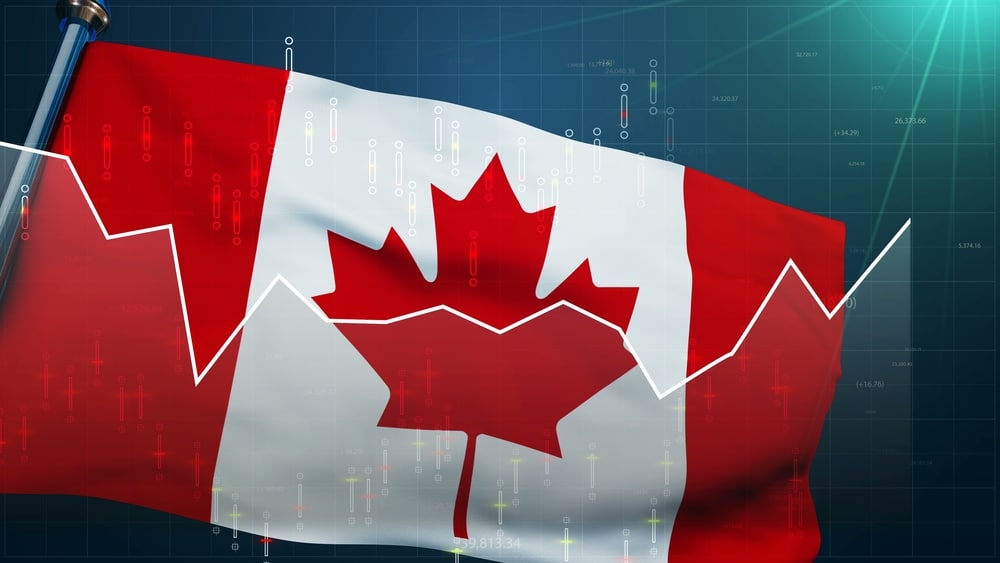
Forex and stocks trading has become a relatively popular way of making money online. It refers to the process of buying and selling financial assets within a short period with the motive of making a profit. Forex trading has been popularized by brokers having significant marketing budgets and customers’ desire to make money online, and the perceived ease of doing so. This article will look at everything you need to know when trading forex online in Canada.
How forex trading works
Modern forex trading has digitized a relatively old method of making money. For example, assume that you are a Canadian traveler with C$10,000 in cash. When you get to New York, you will need to convert this money into US dollars. If the exchange rate is at 0.78, it means that your funds will be worth $7,800.
If you spend a month in the US and the exchange rate falls to 0.70, it means that your $7,800 will be worth C$11,142. In essence, you have just profited by just exchanging your Canadian dollars into US dollars and vice versa.
Currencies experience volatility on a daily basis. Therefore, in forex, traders aim to take advantage of these movements by buying and selling currency pairs. To achieve this, they use a forex broker who provides the technology, liquidity, and leverage.
Day trading in Canada
Canada is one of the biggest economies in the world. It has a gross domestic product of more than $1.7 trillion and a GDP per capita of almost $47,000. The country has a fast-growing population and a vibrant financial services industry. Indeed, all companies listed at the Toronto Stock Exchange (TSX) have more than $3.5 trillion in total market capitalization.
Like their southern neighbor, day trading has become incredibly popular in Canada. Besides, most people in the country have seen successful stories of Americans who trade for a living. These traders use popular brokerage accounts provided by well-known companies like TD Ameritrade, Interactive Brokers, WealthSimple, and Schwab.
Generally, the process of day trading in Canada is similar to what happens in other countries like the UK, Australia, and the United States. You just need to find a good online broker, create an account, and start trading. Before you put your real money, we recommend that you take time to learn about how it works and come up with a strategy that works.
Is forex trading legal in Canada?
A common question is whether forex trading is legal in Canada because of the risks involved. The Canadian financial market is relatively liberal, meaning that the country allows most types of trading. It also allows forex trading, and it is completely legal for forex trading companies to establish headquarters in the country.
However, like in all countries, the forex industry is highly regulated in Canada because of the significant risks involved. The industry is overseen by the Investment Industry Regulatory Organization (IIROC), which is the equivalent of the Securities and Exchange Commission (SEC) and the Australian Securities and Investments Commission (ASIC).
IIROC is given the mandate to register forex and other brokers and to ensure that they operate within the law. It also sets rules that ensure that customers are protected. Still, unlike in most countries, forex trading is also controlled by provincial regulators in the country.
How to trade forex in Canada
Trading forex in Canada is a relatively straightforward process that involves several steps:
- Learn about forex – The first step in forex trading is to learn about the industry. Fortunately, there are many free and premium forex trading courses in Canada that you can take advantage of. You can even use free YouTube videos to learn.
- Create a trading strategy – The next step in trading forex in Canada is to create a trading strategy. In most cases, this step will happen simultaneously with the initial step. Some of the popular trading strategies you could use are scalping, arbitrage, pairs trading, and algorithmic trading.
- Find a forex broker – The next step is to find a broker. While this is an easy process, people tend to make mistakes. Ideally, you should find a broker who is regulated by IIROC and one that has relatively cheaper fees. By fees, we mean spreads since many forex brokers make money using the spread.
- Demo account – You should then use a demo account that is provided by a forex broker to test your trading strategy.
- Real account – Finally, you should deposit your funds and start trading.
Day trading taxes in Canada
A common mistake that many day traders in Canada and around the world make is taxes. At times, some traders fail to report their trading gains to the tax agency, while others report more money than they should. Therefore, understanding how to realize and pay for taxes in Canada is important.
The tax regime in Canada is relatively simple. First, you need to determine the type of trader that you are. If you are an irregular day trader who buys and sells assets within a day, you are not eligible to file for capital gains taxes.
On the other hand, if you do full-time day trading, it means that you are eligible to pay for capital gains taxes. In most cases, the total taxes you will be required to pay are on profits minus any losses. Therefore, if you made a loss within a given year, it means that you can deduct these losses. Meanwhile, companies that operate as hedge funds or investment firms pay corporate taxes like other firms.
Summary
Many Canadians have the desire to trade forex for a living. Many are already trading using one of their popular brokers like CMC Markets and Interactive Brokers. In this article, we have looked at some of the most popular details about day trading in Canada. We have also looked at the process of day trading and issues about taxes that you should know about.








Leave a Reply